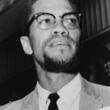Solitary
(Libby/OverDrive eBook, Kindle)
Available Platforms
Description
Solitary is the unforgettable life story of a man who served more than four decades in solitary confinement—in a 6-foot by 9-foot cell, 23 hours a day, in notorious Angola prison in Louisiana—all for a crime he did not commit. That Albert Woodfox survived was, in itself, a feat of extraordinary endurance against the violence and deprivation he faced daily. That he was able to emerge whole from his odyssey within America’s prison and judicial systems is a triumph of the human spirit, and makes his book a clarion call to reform the inhumanity of solitary confinement in the U.S. and around the world.
Arrested often as a teenager in New Orleans, inspired behind bars in his early twenties to join the Black Panther Party because of its social commitment and code of living, Albert was serving a 50-year sentence in Angola for armed robbery when on April 17, 1972, a white guard was killed. Albert and another member of the Panthers were accused of the crime and immediately put in solitary confinement by the warden. Without a shred of actual evidence against them, their trial was a sham of justice that gave them life sentences in solitary. Decades passed before Albert gained a lawyer of consequence; even so, sixteen more years and multiple appeals were needed before he was finally released in February 2016.
Remarkably self-aware that anger or bitterness would have destroyed him in solitary confinement, sustained by the shared solidarity of two fellow Panthers, Albert turned his anger into activism and resistance. The Angola 3, as they became known, resolved never to be broken by the grinding inhumanity and corruption that effectively held them for decades as political prisoners. He survived to give us Solitary, a chronicle of rare power and humanity that proves the better spirits of our nature can thrive against any odds.
More Details
Excerpt
Similar Titles From NoveList
Similar Authors From NoveList
Published Reviews
Booklist Review
Woodfox's shocking memoir of his years in prison, mostly under solitary confinement, is a testament to the human spirit and a scathing indictment of the justice system. Growing up in New Orleans during Jim Crow, Woodfox helps his family by committing petty crimes, eventually growing a long rap sheet. During one of his prison stints, he learns about the Black Panthers and is inspired to change his ways. He befriends Panthers Herman Wallace and Robert King, and the three work to organize other prisoners to fight against their inhumane treatment. These actions lead to several false charges, culminating in the framing for the murder of a correctional officer in 1972 and Woodfox's subsequent decades-long solitary confinement. Woodfox's story reads like a prison diary and is unrelenting in its portrait of the day-to-day humiliations and racism experienced by Black prisoners. His fight to clear his name of the murder conviction shows the lengths that the state would go to keep him incarcerated. Woodfox's difficult story is a call to action for justice-system reform.--Kathy Sexton Copyright 2019 Booklist
Publisher's Weekly Review
In this devastating, superb memoir, Woodfox reflects on his decades inside the Louisiana prison system. He recounts that, as a "badass" black youth in 1960s New Orleans bouncing in and out of jail, he encountered the Black Panther Party and "a light went on in a room inside me that I hadn't known existed." His subsequent efforts to organize protests against the dehumanizing treatment of prisoners in the notorious Angola state penitentiary got him framed for the murder of a white correctional officer in 1972. Woodfox spent the next four decades in solitary confinement, struggling to stay sane by educating himself; helping others; and cultivating deep friendships with two other wrongfully convicted Panthers, Herman Wallace and Robert King. In 2016, he made a no-contest plea and was freed. The book is a stunning indictment of a judicial system "not concerned with innocence or justice," and a crushing account of the inhumanity of solitary confinement. This breathtaking, brutal, and intelligent book will move and inspire readers. (Mar.) © Copyright PWxyz, LLC. All rights reserved.
Library Journal Review
Born in segregated New Orleans in 1947 and raised in the black neighborhood Treme, Woodfox offers an autobiography that is more than his life story. Moving from petty thievery to armed robbery that, at 18, sent him to Louisiana's infamous maximum security prison at Angola, Woodfox had a stint in New York's Manhattan House of Detention called "the Tombs." There he met members of the Black Panther Party for Self-Defense who increased his understanding of institutionalized racism. Woodfox returned to Angola after being wrongly convicted of the murder of a prison guard, for which he was locked down 23 hours a day in a six-by-nine-foot cell for 44 years. How he survived, indeed how he became a better human being amid beatings, isolation, and persecution carry his narrative. More than his telling self-realization and detailing conditions of life behind bars, Woodfox reaches back to the mold of George Jackson's now classic Soledad Brother (1970) to produce a powerful manifesto for reform of the racist, unjust, and inhumane prison-industrial complex. VERDICT A worthy read for anyone interested in the struggle to ensure humanity exists behind bars in America.-Thomas J. Davis, Arizona State Univ., Tempe © Copyright 2019. Library Journals LLC, a wholly owned subsidiary of Media Source, Inc. No redistribution permitted.
Kirkus Book Review
A man who spent four decades in solitary confinement for a crime he did not commit tells his shocking story.Born in 1947 in the "Negro" wing of a New Orleans hospital, Woodfox helped his family eke out survival through petty crimes. Though he showed academic potential, he left high school before graduation, spending his time on streets patrolled by mostly white police officers, who "came through our neighborhood picking up black men for standing on the corner, charging them with loitering or vagrancy, looking to meet their quota of arrests. Once in custody, who knows what charges would be put on those men." Arrested at 18, the author entered Angola penitentiary, where his defiance and his affiliation with a nonviolent chapter of the Black Panther Party led to racist, sadistic guards targeting him. When a white prison guard was mysteriously murdered while on duty, prison officials framed Woodfox for the killing despite his detailed presentation of evidence that another inmate had committed the crime. The bulk of the book chronicles the author's solitary confinement over the next 40 years. In many cases, inmates subjected to these brutal conditions slowly lose their sanity and sometimes commit suicide. Woodfox explains how he overcame those odds despite relentless despair. Through a series of unusual occurrences, public-interest lawyers and other prison reformers learned about his treatment. The activists began building a two-pronged case, advocating for a declaration of innocence regarding the murder and seeking an end to Woodfox's solitary confinement. Though the author is obviously not an impartial source, that understandable bias mingles throughout the narrative with fierce intelligence and the author's touching loyalty to fellow prisoners also being brutalized. Nearly every page of the book is depressing because of the inhumane treatment of the prisoners, which often surpasses comprehension. But it's an important story for these times, and readers will cheer the author's eventual re-entry into society.An astonishing true saga of incarceration that would have surely faced rejection if submitted as a novel on the grounds that it never could happen in real life. Copyright Kirkus Reviews, used with permission.
Booklist Reviews
Woodfox's shocking memoir of his years in prison, mostly under solitary confinement, is a testament to the human spirit and a scathing indictment of the justice system. Growing up in New Orleans during Jim Crow, Woodfox helps his family by committing petty crimes, eventually growing a long rap sheet. During one of his prison stints, he learns about the Black Panthers and is inspired to change his ways. He befriends Panthers Herman Wallace and Robert King, and the three work to organize other prisoners to fight against their inhumane treatment. These actions lead to several false charges, culminating in the framing for the murder of a correctional officer in 1972 and Woodfox's subsequent decades-long solitary confinement. Woodfox's story reads like a prison diary and is unrelenting in its portrait of the day-to-day humiliations and racism experienced by Black prisoners. His fight to clear his name of the murder conviction shows the lengths that the state would go to keep him incarcerated. Woodfox's difficult story is a call to action for justice-system reform. Copyright 2019 Booklist Reviews.
Library Journal Reviews
Convicted of armed robbery, Woodfox joined the Black Panther Party behind bars and was scapegoated with a fellow Panther when a white guard was killed. He subsequently spent four decades in solitary confinement in Louisiana's infamous Angola prison. Throughout, he inspired fellow prisoners and attracted media attention, eventually winning release in 2016. Here he argues for the Black Panthers as socially conscious rather than militant and highlights the essential inhumanity of solitary confinement.
Copyright 2018 Library Journal.Library Journal Reviews
Born in segregated New Orleans in 1947 and raised in the black neighborhood Treme, Woodfox offers an autobiography that is more than his life story. Moving from petty thievery to armed robbery that, at 18, sent him to Louisiana's infamous maximum security prison at Angola, Woodfox had a stint in New York's Manhattan House of Detention called "the Tombs." There he met members of the Black Panther Party for Self-Defense who increased his understanding of institutionalized racism. Woodfox returned to Angola after being wrongly convicted of the murder of a prison guard, for which he was locked down 23 hours a day in a six-by-nine-foot cell for 44 years. How he survived, indeed how he became a better human being amid beatings, isolation, and persecution carry his narrative. More than his telling self-realization and detailing conditions of life behind bars, Woodfox reaches back to the mold of George Jackson's now classic Soledad Brother (1970) to produce a powerful manifesto for reform of the racist, unjust, and inhumane prison-industrial complex. VERDICT A worthy read for anyone interested in the struggle to ensure humanity exists behind bars in America.—Thomas J. Davis, Arizona State Univ., Tempe
Copyright 2019 Library Journal.Publishers Weekly Reviews
In this devastating, superb memoir, Woodfox reflects on his decades inside the Louisiana prison system. He recounts that, as a "badass" black youth in 1960s New Orleans bouncing in and out of jail, he encountered the Black Panther Party and "a light went on in a room inside me that I hadn't known existed." His subsequent efforts to organize protests against the dehumanizing treatment of prisoners in the notorious Angola state penitentiary got him framed for the murder of a white correctional officer in 1972. Woodfox spent the next four decades in solitary confinement, struggling to stay sane by educating himself; helping others; and cultivating deep friendships with two other wrongfully convicted Panthers, Herman Wallace and Robert King. In 2016, he made a no-contest plea and was freed. The book is a stunning indictment of a judicial system "not concerned with innocence or justice," and a crushing account of the inhumanity of solitary confinement. This breathtaking, brutal, and intelligent book will move and inspire readers. (Mar.)
Copyright 2018 Publishers Weekly.Reviews from GoodReads
Citations
Woodfox, A. (2019). Solitary . Grove Atlantic.
Chicago / Turabian - Author Date Citation, 17th Edition (style guide)Woodfox, Albert. 2019. Solitary. Grove Atlantic.
Chicago / Turabian - Humanities (Notes and Bibliography) Citation, 17th Edition (style guide)Woodfox, Albert. Solitary Grove Atlantic, 2019.
Harvard Citation (style guide)Woodfox, A. (2019). Solitary. Grove Atlantic.
MLA Citation, 9th Edition (style guide)Woodfox, Albert. Solitary Grove Atlantic, 2019.
Copy Details
| Collection | Owned | Available | Number of Holds |
|---|---|---|---|
| Libby | 2 | 1 | 0 |


































